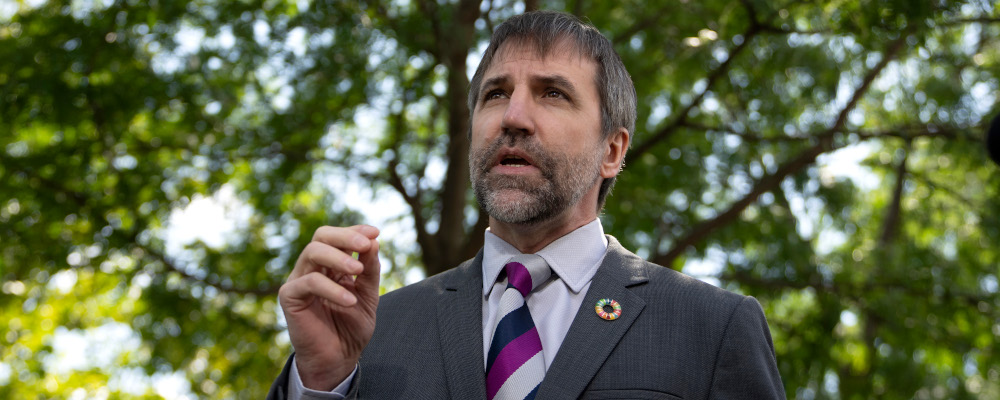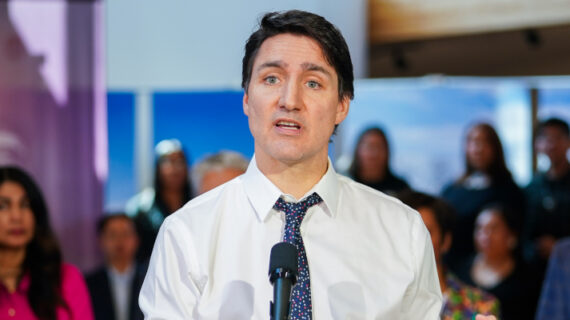The federal carbon tax is set to increase on April 1 from $65 per tonne of carbon dioxide (CO2) equivalent to $80 per tonne, on its way to a planned $170 per tonne by 2030. The planned increase is, to say the least, controversial, with seven provincial premiers calling on the Liberal government to cancel the increase, with Opposition leader Pierre Poilievre promising to “axe the tax,” and with the Saskatchewan government refusing to collect the tax and remit it to Ottawa.
Economists deserve the credit (or the blame) for the idea of a carbon tax as a means of reducing greenhouse gas emissions. What, in fact, does economics have to say about the current and future levels of the carbon tax?
There is agreement among most economists that a carbon tax is potentially the most efficient way to reduce emissions. There is also agreement among many economists that, as the saying goes, the devil is in the details. For this economist, the details are: the current level of the carbon tax is very likely already too high compared to the net costs of greenhouse gas emissions; it has been implemented in the most inefficient way possible; emissions are a global problem and Canada by itself can make a negligible contribution to reducing emissions; and the carbon tax is hurting the competitiveness of Canadian companies in domestic and foreign markets. Understanding the reasoning for these conclusions means being able to make informed decisions at the ballot box and informed criticisms of proposed policies.

The logic of a carbon tax is straightforward. Even if an individual is as well off after an increase in the carbon tax (for example because of a rebate), he or she still has an incentive to substitute goods or activities with less emissions which are relatively cheaper because of the tax.
The goal is to achieve net zero (where an economy either has no emissions or offsets them) by 2050. This stems from the Paris Agreement signed at the UN’s COP21 conference in 2015. The ultimate goal is to limit the increase in the average global temperature to 1.5 degrees Celsius above its pre-industrial level.
This goal will be very hard to attain, mainly because it is very difficult to reduce some types of emissions (think heating a house with a heat pump using renewable electricity in -20 degrees Celsius weather with no sun and no wind). Bjorn Lomborg, head of the Copenhagen Consensus Institute, has calculated, using one of the UN’s own models, that all policies from the Paris Agreement would “likely reduce global temperature rise about 0.17 degrees Celsius in 2100,” an impact which would be imperceptible.
The conclusion must be that the net zero goal is suboptimal. The only economist to win a Nobel prize for work in environmental economics, William Nordhaus of Yale University, argued that a target of 3.5 degrees would balance costs and benefits and that doing nothing at all would be better than trying to hit a target of 1.5 degrees. Rather than attempting more than a very modest mitigation of temperature increases, adaptation to warming is better.
The economic justification for a carbon tax is that emissions cause harms that are not included in the prices of the goods produced using technologies that emit greenhouse gases. With a carbon tax, the total price reflects the total “social cost” of emissions.
Almost all estimates of the social cost take into account only the predicted harmful effects of CO2 (using models that have systematically overstated its warming effects). They neglect the well-established positive impact of CO2 on plant growth, which has led to a greening of the earth and an increase in agricultural productivity estimated to be worth over $3 trillion between 1961 and 2011.

A recent study of the social cost of CO2 accounts for this effect and gives a range of estimates lower than the current carbon tax—and in some cases, the estimated social costs are actually negative. If this is indeed the case, then the argument follows that we should be subsidizing rather than taxing the use of fossil fuels.
Regardless, though, if the goal is to efficiently reduce emissions, the carbon tax should be used alone. Piling on other taxes, subsidies, regulations, and controls increases the cost of cutting emissions because they introduce distortions into the operation of markets. The current policy mix has many of these, including but not limited to mandates on zero-emission vehicles, massive subsidies for the production of batteries for electric vehicles, carbon tax exemptions for heating oil but not for other types of home heating, total bans on some uses of plastic, etc. It almost seems guaranteed to maximize the cost of reducing emissions.
If greenhouse gases are a problem, they’re a global problem. Canada can do nothing by itself to solve it. If the Canadian economy were to disappear tomorrow, the increase in emissions from China, which is building two new coal-fired power plants per week, would more than makeup for the elimination of Canadian emissions within months. The Climate Tracker Action organization assesses that in February 2024 no countries are meeting their Paris Agreement targets. Many countries (including Canada) are either “highly” or “critically” insufficient.
If going it alone is futile, the carbon tax is punishing Canadian firms in an important way. It hurts their competitiveness with imports from firms that face a lower carbon tax and when exporting to markets served by those firms. It is possible (but administratively costly) to implement border adjustments that tax the imports from jurisdictions with a lower carbon tax, and which wholly or partially exempt the tax on exports to such jurisdictions. There have been discussions about implementing these adjustments, but so far they have not borne fruit.
The bottom line: pause increases in the carbon tax permanently and have a serious discussion about eliminating the hodgepodge of rules and regulations that are harming the efficiency and competitiveness of the Canadian economy.




